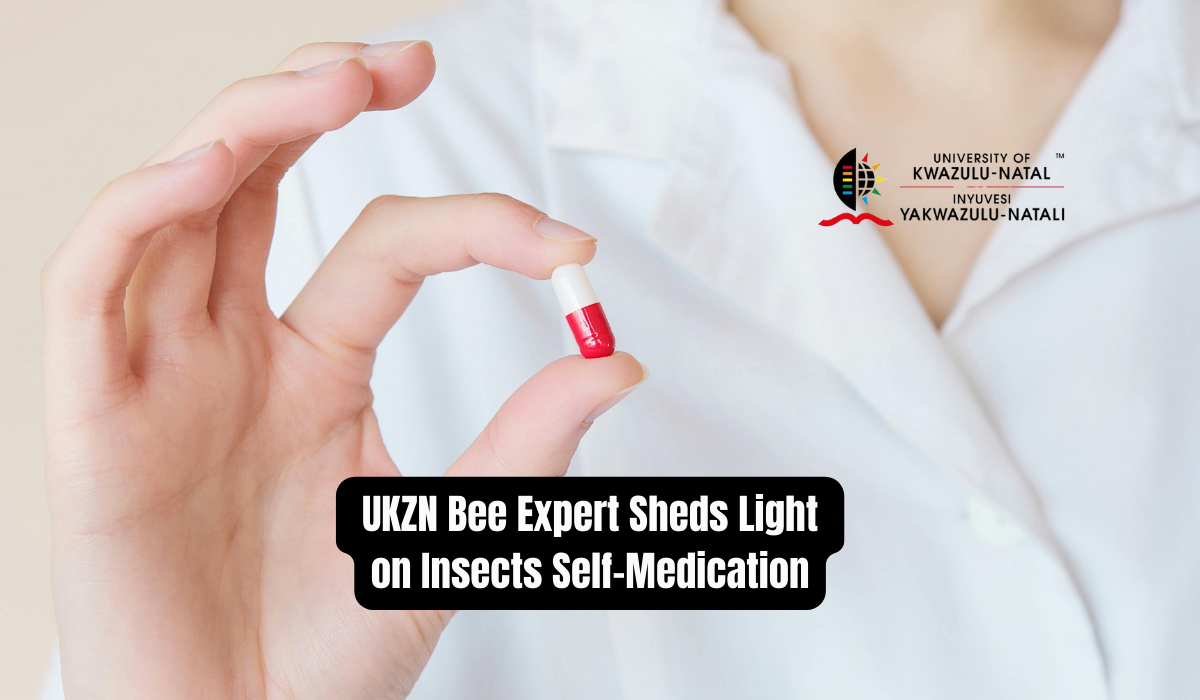UKZN Bee Expert Sheds Light on Insects Self-Medication

UKZN Bee Expert Sheds Light on Insects Self-Medication. University of KwaZulu-Natal’s School of Life Sciences, a profound exploration into the realm of insects’ self-medication has been unveiled. Shedding light on this fascinating phenomenon, Prof. Lattorff, alongside an esteemed team of scientists from across the globe, delves into the intricate world of insect behavior, evolution, and ecological interactions.
Read Also: UKZN Status Check Online
Understanding Insect Self-Medication: A Paradigm Shift
Published in the esteemed journal Trends in Parasitology, the open-access paper titled “Insects’ Essential Role in Understanding and Broadening Animal Medication” marks a significant milestone in entomological research. This comprehensive review not only explores the intriguing behaviors of insects but also examines their remarkable ability to utilize medicinal food for self-treatment and the well-being of their kin.
Unraveling the Mystery: The Journey of Discovery
Inspired by a symposium on self-medication in insects hosted by Prof. Lattorff during the International Congress of Entomology in 2022, this pioneering study seeks to bridge the gap in our understanding of insect self-medication. With the last comprehensive studies on this topic dating over a decade ago, the research team embarked on a quest to unveil the latest insights and advancements in this fascinating field.
From Chimpanzees to Butterflies: A Universal Phenomenon
The concept of self-medication, initially observed in chimpanzees, finds resonance in the world of insects. Defined as the consumption or application of external substances prompted by the presence of infection, this behavior underscores the innate intelligence of insects in safeguarding their health and that of their relatives.
Prof. Lattorff elucidates how this behavior, although seemingly costly, is evolutionarily advantageous in their natural habitat.
Charting New Frontiers: The Role of Insects in Medicinal Research
Drawing parallels with millennia of human observation, where medicinal practices have been derived from nature, insects present a new frontier in medicinal research. Their suitability for both field and laboratory experimentation, coupled with their diverse behaviors and ecological interactions, offers a rich tapestry for scientific exploration.
A Framework for the Future: Closing Knowledge Gaps
Prof. Lattorff and his colleagues meticulously outline the existing knowledge, predictions, and research gaps in the realm of insect self-medication. They provide a comprehensive framework for studying this phenomenon, encompassing factors to be considered, criteria to be measured, and potential challenges to be addressed.
This framework not only sheds light on the evolutionary significance of kin medication but also underscores the pivotal role of the microbiome in insect health.
Conclusion
As Prof. Lattorff embarks on his journey at the University of KwaZulu-Natal, his vision for integrating teaching and research heralds a new era of discovery. With a steadfast focus on bees, parasites, and diseases, his work promises to unravel the intricate tapestry of nature’s pharmacy.
From the pollination of avocados to the genetic basis of bee reproduction, each endeavor contributes to our collective understanding of insect health and ecological sustainability.






